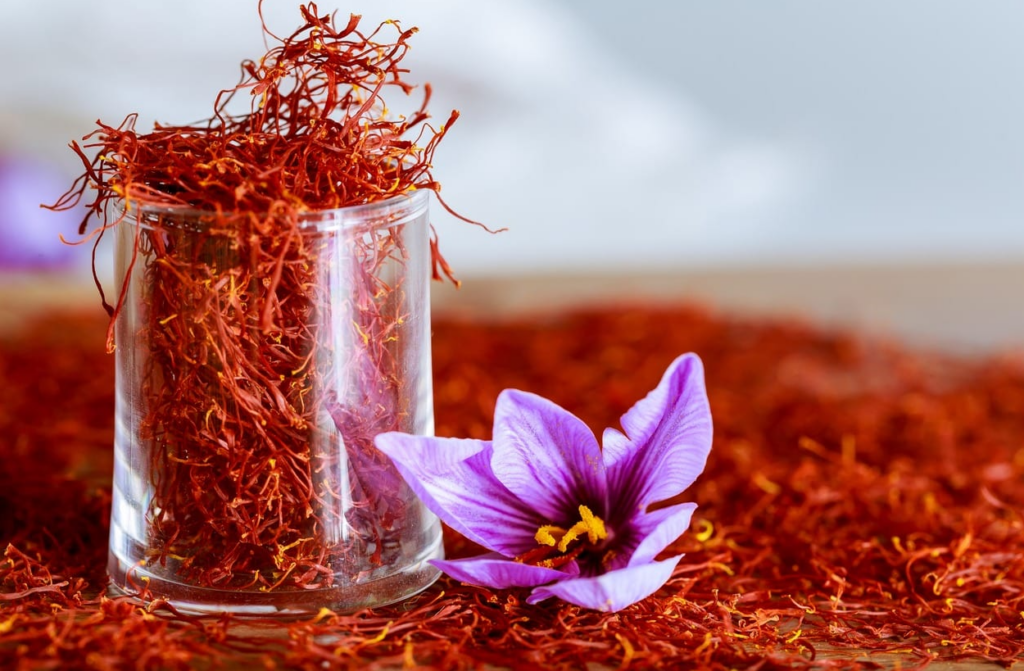Saffron, often called “the golden spice,” is renowned not only for its distinct color and flavor in cooking but also for its numerous health benefits. Traditionally used for centuries in Middle Eastern and South Asian cuisine and medicine, saffron is now gaining recognition in modern wellness for its potential role in improving sleep quality. In this article, we’ll delve into how saffron may help promote restful sleep, how it works in the body, and how to use it effectively.

Understanding Saffron’s Health Properties
Saffron is derived from the flower Crocus sativus and contains a range of bioactive compounds, including crocin, picrocrocin, and safranal. These compounds have been studied for their powerful antioxidant, anti-inflammatory, and mood-enhancing properties. As research progresses, scientists have discovered saffron’s potential to help with mood regulation and, more recently, its impact on sleep quality.
How Saffron May Improve Sleep
Several recent studies have focused on saffron’s effects on sleep, particularly due to its ability to influence mood, reduce anxiety, and promote relaxation—factors closely linked to healthy sleep patterns.
- Mood Regulation and Anxiety Reduction
Saffron has been shown to influence neurotransmitters in the brain, specifically serotonin and dopamine, both of which play a role in mood regulation. Anxiety and depression often contribute to sleep disturbances, and saffron’s impact on mood may indirectly improve sleep by easing symptoms of stress and restlessness. - Sedative-Like Properties
Safranal, one of saffron’s active compounds, has shown mild sedative effects in animal studies, potentially making it easier to fall asleep. While research is still emerging, this compound could be part of why saffron has a reputation for promoting relaxation. - Anti-Inflammatory Effects
Chronic inflammation has been associated with sleep disorders, and saffron’s anti-inflammatory properties may help address some of the underlying causes of sleep disruption. By reducing inflammation, saffron may support better overall health and a more consistent sleep cycle. - Antioxidant Support
Oxidative stress is another factor that can negatively impact sleep quality. Saffron’s antioxidant properties help combat oxidative damage in the body, supporting the central nervous system and overall well-being, which are essential for restful sleep.
Scientific Studies on Saffron and Sleep

Research on saffron’s role in sleep health is still in its early stages, but several studies indicate promising results. One study published in 2019 in the journal Sleep Medicine found that participants who took a saffron extract reported improved sleep quality and reduced insomnia symptoms compared to those who took a placebo. Another study found that a standardized saffron extract helped with the onset and duration of sleep, showing potential as a natural supplement for mild sleep issues.
While these studies are encouraging, it’s essential to recognize that more research is needed to fully understand how saffron works as a sleep aid and to establish optimal dosages.
How to Use Saffron for Better Sleep
If you’re interested in using saffron as a natural sleep aid, here are a few ways to incorporate it into your routine:
- Saffron Tea
Saffron tea is a popular way to consume the spice for its calming effects. To make it, steep a few strands of saffron in hot water for 10-15 minutes, then add honey or a pinch of cinnamon for extra flavor. Drinking this tea in the evening may help you relax and prepare for sleep. - Saffron Supplements
Saffron supplements are available in capsule or extract form and are often standardized to ensure a consistent dose of active compounds. When choosing a saffron supplement, look for products that have been tested for quality and purity. It’s generally recommended to start with a low dose and consult a healthcare provider if you’re considering saffron supplements as a sleep aid. - Adding Saffron to Meals
Incorporating saffron into your evening meal could be a subtle way to enjoy its benefits. A small pinch of saffron can be added to soups, rice dishes, or warm milk to create a relaxing, flavorful dish that might contribute to a better night’s sleep.
Safety and Precautions

While saffron is generally considered safe when consumed in moderate amounts, it’s essential to keep a few things in mind:
- Pregnancy and Breastfeeding: Pregnant or breastfeeding women should consult a healthcare provider before using saffron, as its safety in these conditions is not well established.
- Allergic Reactions: Although rare, some people may experience allergic reactions to saffron. If you have known allergies to plants in the Iridaceae family (like crocus or iris), use caution.
- Overconsumption: High doses of saffron (5 grams or more) can be toxic. Always stick to recommended dosages, especially when using saffron supplements.
Conclusion: Saffron as a Natural Aid for Sleep Quality

Saffron offers a natural, gentle approach to enhancing sleep quality by addressing the factors that often interfere with restful sleep, such as stress, anxiety, and inflammation. While more research is necessary to fully understand its effectiveness, early studies suggest that saffron may have a role in promoting relaxation and improving sleep duration and quality.
For those looking for an alternative to synthetic sleep aids, saffron could be worth exploring—just remember to use it responsibly and consult a healthcare provider before starting any new supplement. With its rich flavor, beautiful color, and potential health benefits, saffron truly earns its status as a golden spice with far-reaching wellness applications, including support for a restful night’s sleep.





